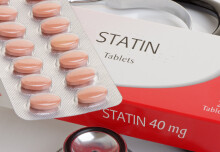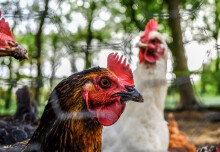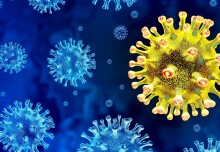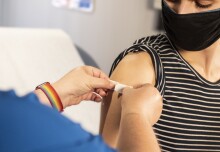

Nudging success
DnaNudge and NantNudge accelerate handheld AI genomics
Imperial College London spinout DnaNudge has signed a multi-million-dollar license agreement with NantNudge to drive AI-driven handheld diagnostics.



DnaNudge and NantNudge accelerate handheld AI genomics
Imperial College London spinout DnaNudge has signed a multi-million-dollar license agreement with NantNudge to drive AI-driven handheld diagnostics.


Malaria parasite gene could be effective drug target to block transmission
A newly discovered gene in the malaria parasite could be a good target for future drugs aimed at preventing disease transmission.


Statin benefits patients with severe COVID-19 while vitamin C is ‘ineffective'
A common cholesterol-lowering drug may improve outcomes for critically ill patients with COVID-19, while high dose vitamin C is ineffective.


Major study shows new insights into lasting impacts of COVID‐19 on UK population
Tens of thousands of people in England may have lasting symptoms from COVID‐19 more than a year
after infection, new analysis reveals.


New mechanism found that maintains water balance within cells
Scientists have discovered a new mechanism that allows cells to maintain their ideal water availability from second to second.


Imperial President - College making big moves to accelerate medical innovation
Professor Hugh Brady says that Imperial is working to speed development of innovations that have potential to be as transformational as penicillin.


Gene-edited chickens show promise in fight against bird flu
Scientists have successfully used gene editing techniques to limit the spread of bird flu in chickens.


New multi-million research projects announced to tackle future disease threats
Imperial scientists are among those to lead ambitious new UK-based research to kickstart future vaccine development.


Easier diagnosis of childhood fever using a new rapid blood test
A simple blood test which may be able to rapidly diagnose the cause of a child’s illness could be ‘transformative’, say researchers.


Study identifies vulnerable groups least likely to have COVID-19 antibodies
Findings from the MELODY study have identified which people with compromised immune systems are less likely to have COVID-19 antibodies.